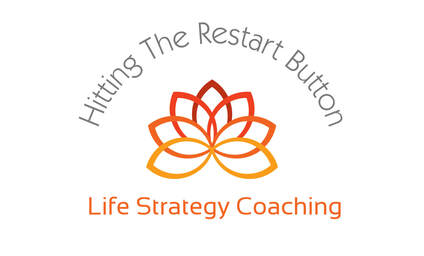|
If you are like me, you probably feel so overwhelmed by the divorce process - the legalities, the amount of time everything takes, disempowerment about what you expected versus what is the reality, and perhaps blown away by the cost. Not to mention all the emotions you are feeling - pain, hurt, anger, rage, fear sadness and guilt. And, although you may be an intelligent, self-starter, highly functional, and self-responsible individual in all areas of your life, divorce is one of those life experiences that can result in sudden self beliefs and behavior that is out of character for you. This includes falling into the "victim mentality" mindset. What is Victim Mentality? "At its core, a victim mindset is rooted in trauma, distress, and pain most of the time. When you experience a traumatic situation, typically at the hands of other people, you may learn that you are helpless and that nothing you do in the future is going to make any difference" according to psychologist and author, Arlin Cuncic, MA. Clearly with divorce, there is trauma by the very nature of breaking up a marriage and in most cases, an entire of family. The ways this life change impacts a person are numerous and unique to each situation, but commonly include new physical and financial demands, co-parenting stress and change in residence. These are justifiable reasons to feel a sense of being victimized. Feeling Like a Victim During Divorce is Normal Feeling hit from every angle, not getting what you want or expect is usually what causes this victimized feeling. Learning the reality of things like spousal support, child support, visitation, asset division, coupled with experienced advice from your lawyer and decisions rendered by a judge can be shocking, angering and leave you feeling defeated and out of control. In some cases this is further aggravated by having experienced infidelity, or even the hateful and purposeful vitriol of a narcissistic ex-spouse. What Characterizes A Victim Mentality? At its core, victim mentality is a mindset of learned helplessness. In the case of divorce, this is usually a feeling brought by this event and is not necessarily a personality trait. Nonetheless, it can overpower you with feeling out of control and unable to see the light at the end of the divorce tunnel. Some of the characteristics of victim mentality include:
Not Letting "Victim Mentality" Overtake and Define You While common during divorce, if left unrecognized or unaddressed, "victim mentality" mindset, can be self-defeating and detrimental to your sense of empowerment and well-being long-term. Sometimes circumstances just suck and you don't have the control you want. This does not mean that you should allow yourself to stay stuck in the internal belief that you are helpless. Instead, embracing the view that you are the architect of your life is key. A prolonged victim mentality causes you to lose perspective that you DO have control of the way you react to circumstances and an ability to create a path for the future life you want. How to Overcome A Victim Mindset? There are ways to take control of your divorce and regain normalcy. 1. Acknowledge the Feelings Validating your frustration, sadness and disappointment is a first step to healing feeling like a victim. 2. Self-Care With the right self-care and compassion, you can move through this. According to Arlin Cuncic, MA, "victim mentalities are subconsciously adopted as a way to cope, often from past trauma. Be compassionate to yourself in your recovery. Practice self-care and self-love. " 3. Knowledge is Power Empowering yourself early on in the process with basic divorce law norms and outcomes will lessen your shock and allow you to deal more pro-actively with what otherwise would have blindsided you and caused feelings of victimization. 4. Utilize Professional Experts Build a team of professionals in key disciplines such as divorce coaching, accounting, tax, insurance, financial planning, credit and loan. Many of these experts do not charge for consultations and it will enable you to have a 40,000 foot view of your unique situation and how to best approach your settlement agreement and future life plan. 5. Set Your Goals Having clearly defined goals for your post-divorce life allows you to keep blinders on to avoid getting sidetracked and triggered when things don't go the way you want or expect. In this way you are being the architect of your life. 6. Emotional Support Engage in practices that will support an empowered state of mind such as mindfulness, meditation, therapy or coaching, journaling and self help books. Love & Light - Elisa
0 Comments
Leave a Reply. |
ELISA
|
|
Elisa Valentino
HOLISTIC BEHAVIORAL PRACTITIONER DIVORCE & LIFE TRANSITION COACH SPIRITUAL LIGHTWORKER PUBLIC SPEAKER PODCAST HOST |
©2024 Hitting The Restart Button



 RSS Feed
RSS Feed
